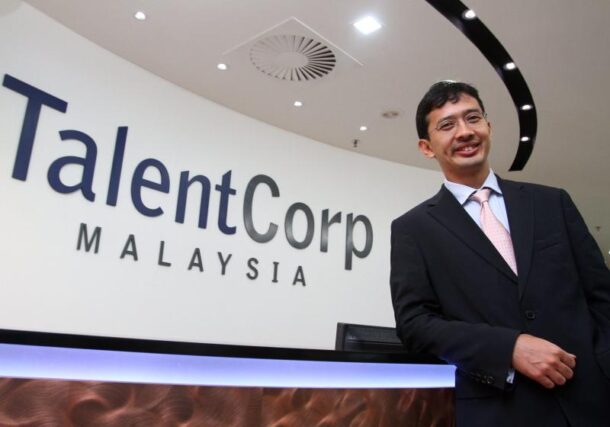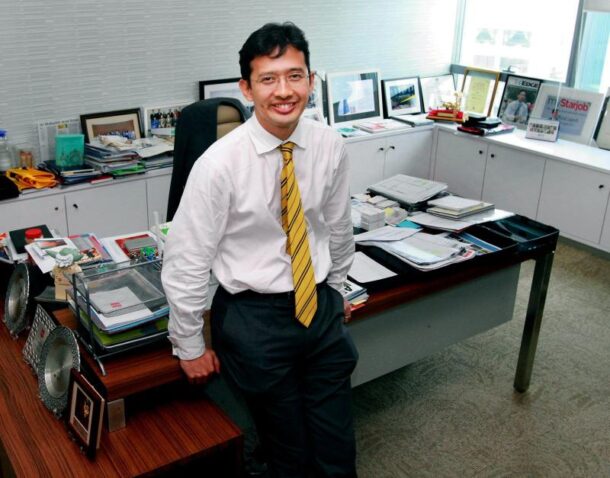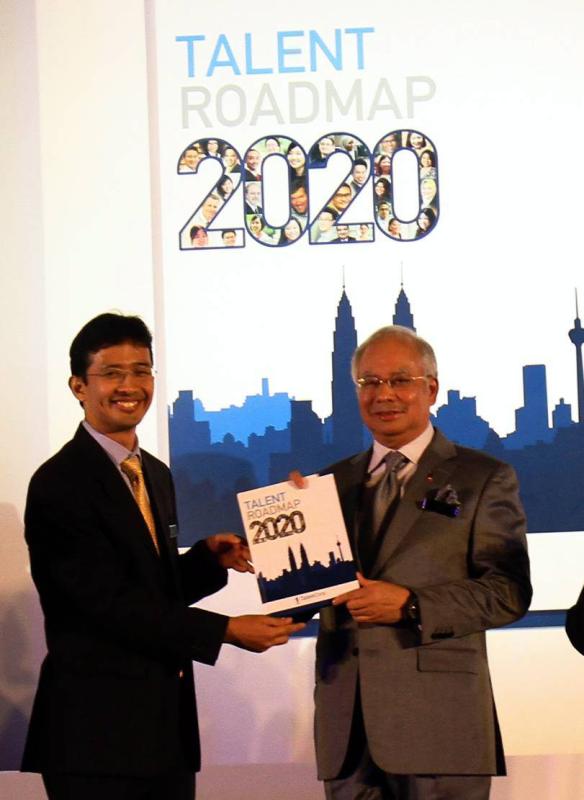By CHRISTINE CHEAH
alltherage@thestar.com.my
JOHAN Mahmood Merican, the CEO of TalentCorp Malaysia, is a geek.
While he was giving R.AGE a tour of his office last week, he just couldn’t resist showing off all the Star Wars, Star Trek and Lord Of The Rings posters hung around the place – many of which he bought on his travels.
“We call the pantry the Shire,” he said with a huge grin. “And all the meeting rooms here are references to spaceships, like ‘Imperial’ and ‘Enterprise’.”
Even his cuff-links were tiny Starfleet badges; and the stylish yellow-and-black necktie he wore? Official Harry Potter Merchandise. “Some people say it looks like a Maybank tie because of the colour, but it’s really a Hufflepuff tie!”
This is, of course, the man tasked with creating a new generation of young Malaysian talent to drive the country’s economic transformation – the same man who has overseen the return of over 2,300 Malaysians back to the country since TalentCorp was founded in late 2010.
And even though he’s 40, he’s also clearly young-at-heart; making him the perfect person to talk about what young Malaysians today need to do to not only optimise their talents for the job market, but for the country as well.

TalentCorp Malaysia CEO Johan Mahmood Merican is the man tasked with optimising Malaysian talents, and he said if that means them staying abroad, then so be it.
What do you think young Malaysians are looking for in terms of their careers?
Training and development would usually be in the top three things they look for, and that’s something we want to focus on.
When we engage Malaysians abroad (one of TalentCorp’s main focuses, alongside optimising and building networks of local talent), a lot of them say ‘why should I come back when I earn more at a fastfood outlet here than a proper job in Malaysia?’
But you can’t just look at a single point in time. You have to look at your entire career, and I think in this respect, working at a fast food outlet is a career-limiting thing to do. Where can you go from there?
There are opportunities in Malaysia, either with Malaysian companies going regional or multinational companies setting up base here.
Malaysia is at the heart of a booming Asia, and that offers more scope for learning and development.
According to a PWC report on Gen-Y, 88% of them expressed an interest to work abroad. What are your thoughts on that?
Naturally, the grass is greener on the other side, and that applies to wherever you are. People in other countries talk about coming to Malaysia too.
But what we say to Malaysians abroad is not just ‘hey, come home!’. We tell them if you have a great opportunity to work for global organisations and get exposure you won’t be able to get in Malaysia, by all means stay (abroad).
We hope that at some point in time, they would build up that experience and return to Malaysia. What we don’t want is people working overseas for the sake of being overseas.
When we were in London, the concierge at the hotel we were staying at was a Malaysian law graduate! He said he was earning more than he would chambering in Malaysia.
But that’s like comparing a toll booth collector and a bricklayer. The toll booth collector earns more, but if you are a bricklayer, you can develop your skills and become a supervisor, and then a contractor. It’s all about optimising yourself.
I would tell graduates that the organisation you start off with is more important than the country. Look for an organisation where you can learn and grow, and secondly, find a company that has international orientation or benchmarks. You can definitely do that in Malaysia because there are many multinational companies being set up here.

Johan’s office at TalentCorp Malaysia, which he has furnished with plenty of geek culture references.
Instant gratification is such a big part of the Gen-Y mindset. How does that affect one’s career?
You have to work over a certain length of time to get to where you want to go. You need to build up competency, work hard, and work smart. That’s where delayed gratification is important.
The beauty of Malaysia today is that companies are in a rush to grow. You will have an urge to earn your stripes, but you can only do that if you are working hard in a particular role to build that experience.
There are a lot more opportunities to rise to the top here compared to a developed nation. Those who can delay gratification – and who are good at what they do – can become partners in their early 30s. There are many corporate CEOs in their 30s, and we know managers of big four companies in Malaysia who are in their early 40s. You’d never be able to do that in developed countries.
They say young people now tend to switch jobs more regularly. How does that affect their careers?
(Laughs) When I started working 20 years ago, that’s what the older generation said about the younger ones too!
But the days of lifetime employment are over, and it’s unrealistic to expect that these days. Having said that, I would advise young people to stay in their jobs as long as they are learning and developing. If they find that they hit a wall after a couple of years, then it’s the right time to move on. It’s not a bad thing. Companies need to make sure they engage their employees, that they have a plan for them.
What about job-hopping as a career strategy?
It will eventually catch up with you. Yes, you will get a salary increment, maybe move ahead quicker compared to your peers that stay three to five years (with one company), but you will reach a point where you can’t perform in a high-level role because you don’t have the depth for it. Not having enough depth to develop competency can be potentially bad for an employee.
What’s the idea behind TalentCorp Malaysia’s advocacy of Flexible Work Arrangements (FWA) initiatives?
When we launched FlexWorkLife.my portal last year to highlight various FWA initiatives, it was targeted at retaining women in the workforce. Now, it clearly relates to the Gen-Y as well because they rate FWA highly among the things they look for in an organisation. We are happy to see that because it encapsulates our objective to (encourage) employers in Malaysia to embrace FWA as a means of engaging their employees.

TalentCorp Malaysia was introduced by Prime Minister Datuk Seri Najib Tun Razak in 2010 to retain and develop talents to enable the country to become a high-income nation by 2020.
How sure can employers be their employees won’t abuse the flexible work hours?
This is a common concern for employers, but there are a few ways to mitigate it. When PricewaterhouseCoopers (PWC) first introduced FWA, they only opened it to working mothers who had achieved above average results with a young child. These are people companies don’t want to lose because they are high performers. So start off with (employees) you can trust. Once people are used to it, it becomes a culture, and you can expand on it. Now PWC offers FWA to all its employees.
In terms of deciding on one’s career path, what is your advice to young Malaysians?
There is this danger in Malaysia of parents telling their children that a white-collared job is the secret to success, and it is overplayed that everyone needs a degree.
We have our own different strengths and competencies. If you focus too much on academic exams, everyone is measured by the same ruler. When it comes to IQ and EQ, there are a lot of different capabilities to be measured.
Young people should know themselves well. There are so many profiling tools out there, and we now have liberty of information, so figure out what you are good at.
Of course we say “do what you enjoy”, but that doesn’t mean because I love football I’m going to be the next Maradona. Now we have a diversified economy, unlike the days of just rubber and tin, so you are in a good position to find the job that fits you best, and gives you a higher chance of succeeding.

Leave a reply